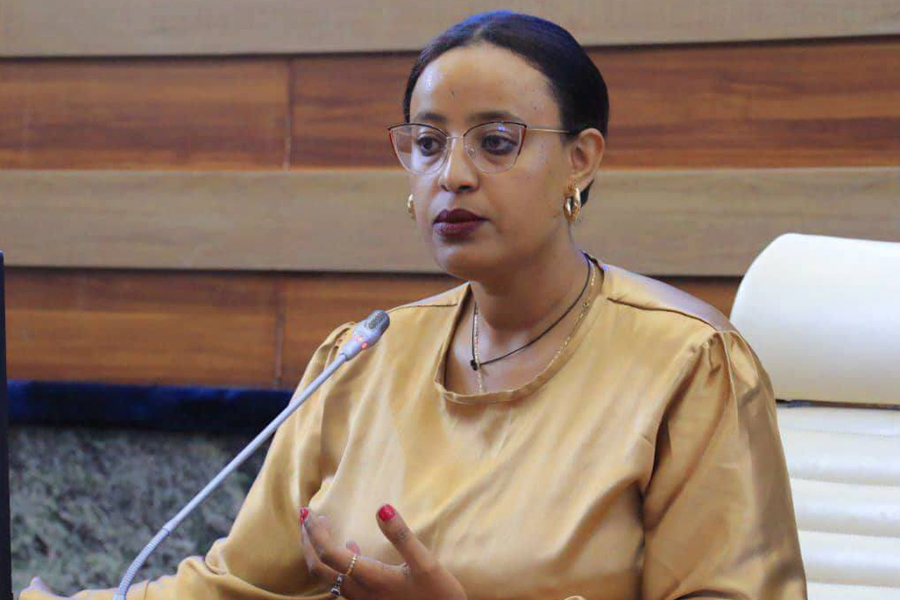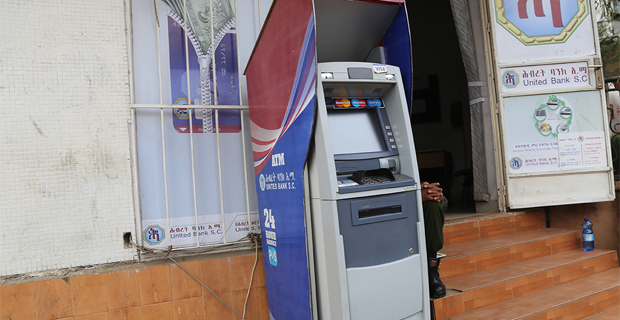
Viewpoints | Jan 05,2019
Jul 18 , 2021
By Shewangezaw Seyoum
The war in Tigray Regional State, apart from inducing humanitarian crisis, has brought to the forefront the perennial questions about the federal structure of Ethiopia along lingo-cultural fault lines. In particular, the dispute between regions, including between Tigray and neighbouring Amhara Regional State, Afar and Somali, and many others across the country. It used to and has continued to shine a light on the complex issue of the current federal structure and the constitution that underlies it.
As things stand now with the Tigray war, the federal government has withdrawn from many parts of the region, including the capital, Meqelle. It has also declared a humanitarian ceasefire. But the conflict has not ceased, unfortunately, and to the continued heartbreak of many Ethiopians. Federal forces withdrawal has also brought attention to the disputed lands between Amhara and Tigray regions, which have since been annexed by the former. At the least, the dispute is highly complex, no less because it is home to diverse ethnicities.
This complex does not end with those disputed lands, however. Although the Tigray conflict has gripped the world’s attention, there have been many incidents of communal violence – some going as far back as over a decade – over contested areas. While elite agitation has played a role in this, the background to these conflicts has to do with a combination of lack of representation, bad governance and identity politics.
Across the world, the role played by identity politics in the organisation of societies has come to the forefront. This is also evident in Ethiopia, where society has fractured along lines of language, culture and religion. With a political space where civic nationalism is eroded, and nationalism takes centre stage, violence has flared to horrific levels. Ethiopia has now one of the world’s largest internally displaced populations, not to mention its first civil war in close to three decades.
The current predicament we have contradicts one of the central tenets of the constitution, which is the creation of a common political and economic community and the rights of citizens to live and work anywhere in the country. It also undermines economic development as it stifles the free movement of labour, capital, and goods.
Such a political development also does not tally well in a fast urbanising country, where cosmopolitanism can grow and people tolerate one another. Urban areas are mostly melting pots of racial, ethnic and religious diversity, where belongingness is framed from the perspective of liberal values that include individual rights and tolerance. Indeed, the world is becoming a village – despite obstacles such as the COVID-19 pandemic – where diversity will and should increase, not a place of homogeneity.
The answer should not be to re-organise the Ethiopian state overnight. A system pushed top-down by the victors rarely ever works. It is essential to recognise that there is strong resistance to reforming Ethiopia’s federal state. It is also understandable that there are supporters of the current federal arrangement that see it as a defense against a centralised state. This should also be understandable. It should no less be recognised that federalism along lingo-cultural fault lines leaves out grey and multiple identities.
This requires further negotiations, political settlement, and compromises to create a structure with even more consensus with the public. This is essentially a political problem. There is nothing about it that cannot be addressed if the various political groups and their elites tolerate one another.
It is with a greater consensus that Ethiopians can beat poverty and preserve the stability of their country.
PUBLISHED ON
Jul 18,2021 [ VOL
22 , NO
1107]


Viewpoints | Jan 05,2019

Radar | Jul 09,2022

Viewpoints | Apr 24,2021

Sunday with Eden | May 15,2021

Fortune News | May 17,2025

Fortune News | Jul 22,2023

Fineline | Nov 30,2019

Sunday with Eden | Feb 27,2021

Commentaries | Jul 06,2019

Fortune News | Apr 13,2020

Photo Gallery | 178740 Views | May 06,2019

Photo Gallery | 168936 Views | Apr 26,2019

Photo Gallery | 159778 Views | Oct 06,2021

My Opinion | 137107 Views | Aug 14,2021
Commentaries | Oct 25,2025

Dec 22 , 2024 . By TIZITA SHEWAFERAW
Charged with transforming colossal state-owned enterprises into modern and competitiv...

Aug 18 , 2024 . By AKSAH ITALO
Although predictable Yonas Zerihun's job in the ride-hailing service is not immune to...

Jul 28 , 2024 . By TIZITA SHEWAFERAW
Unhabitual, perhaps too many, Samuel Gebreyohannes, 38, used to occasionally enjoy a couple of beers at breakfast. However, he recently swit...

Jul 13 , 2024 . By AKSAH ITALO
Investors who rely on tractors, trucks, and field vehicles for commuting, transporting commodities, and f...

Oct 25 , 2025
The regulatory machinery is on overdrive. In only two years, no fewer than 35 new pro...

Oct 18 , 2025
The political establishment, notably the ruling party and its top brass, has become p...

Oct 11 , 2025
Ladislas Farago, a roving Associated Press (AP) correspondent, arrived in Ethiopia in...

Oct 4 , 2025
Eyob Tekalegn (PhD) had been in the Governor's chair for only weeks when, on Septembe...

Oct 25 , 2025 . By YITBAREK GETACHEW
Officials of the Addis Abeba's Education Bureau have embarked on an ambitious experim...

Oct 26 , 2025 . By YITBAREK GETACHEW
The federal government is making a landmark shift in its investment incentive regime...

Oct 29 , 2025 . By NAHOM AYELE
The National Bank of Ethiopia (NBE) is preparing to issue a directive that will funda...

Oct 26 , 2025 . By SURAFEL MULUGETA
A community of booksellers shadowing the Ethiopian National Theatre has been jolted b...